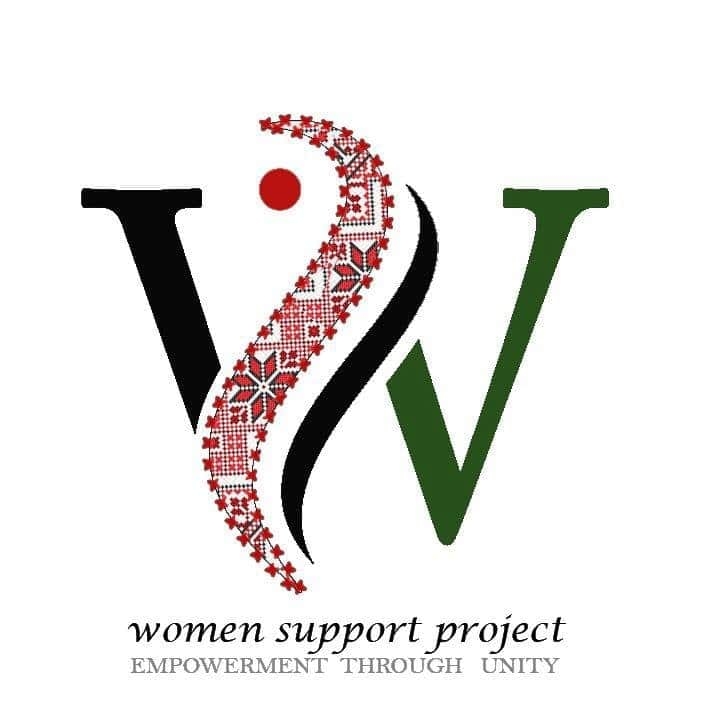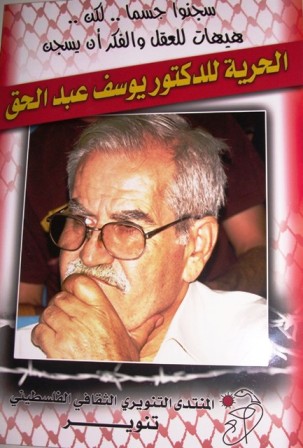Tag: Tanweer Enlightenment Forum
-
Women Support Center in Nablus empowers women and girls, resists gendered violence and the Occupation
The Women Support Center is a project of the Tanweer Cultural Center and has been active in Nablus and surrounding communities of the Northern West Bank for four years now. It serves women and children with legal, mental health, economic, educational, and recreational initiatives. Designed to encourage independence, safety, wellness, and solidarity among women, they…
-
Extension of administrative detention of Dr. Yousef Abdul Haq for the second time
31 March 2012 | Tanwer Human beings are born free, but we are surrounded by restrictions everywhere Jean-Jacques Rousseau Today on the thirty-sixth anniversary of the Palestinian Land Day, which confirms for our people the unity and integrity of our case, the unity of its land, and the right of return and self-determination, the Israeli…
-
Israeli military court extends administrative detention for civil rights lawyer Dr. Yousef Abdul Haq
9 February 2012 | Tanweer Enlightenment Forum The Israel military court has extended administrative detention for two months in addition to three months already detained for civil rights lawyer Dr. Yousef Abdul Haq, a lecturer at An-Najah National University and the Cultural Coordinator for the Tanweer Palestinian Cultural Enlightenment Forum, currently detained in Ofer Prison…



